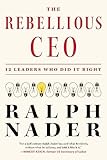“Progressive Victory”
Maybe it’s some sort of “progressive victory” that Daily Kos publisher Markos Moulitsas is a contributing columnist at the longstanding “mainstream” (corporate) media outlet Newsweek magazine. That’s what a liberal I know tells me.
I wouldn’t really know if he’s right since I almost never get to Daily Kos. I’m too busy with the leading dominant media organs and (the only antidote that works for me) explicitly left outlets like Z Magazine, ZNet, CounterPunch, Black Agenda Report, International Socialist Review, and Dissident Voice. So I’m not in the best position to comment on how much of a left attainment it is that “the world’s most powerful liberal blogger” (Jack Tapper, “Inside the Mind of the World’s Most Powerful Liberal Blogger,” ABC News, June 24, 2006) is a regular presence in corporate news and commentary.
“Liberal Media” Operative Karl Rove: “Stay Strong on Iraq”
But two things tend to dampen my excitement over Moulitsas’ job at Newsweek. First, the magazine has also just given regular column space to a new and most definitely NOT progressive “writer”: Karl Rove, the smiling, semi-Satanic architect of the Bush II administration’s monumentally plutocratic, regressive, arch-authoritarian, and messianic-militarist political strategy from 2000 through late 2006. Rove made his lovely debut working for “the liberal media” last week, penning a Newsweek column in which he counseled Republicans to defeat that great radical Hillary Clinton by “staying strong on Iraq.” He still has the revolting chutzpah to call Iraq a “vital battleground in the war on terror.” (Karol Rove, “How to Beat Hillary (Next) November,” Newsweek, November 26, 2007, p.39)
Anti-Government Ideology
The second thing is that Moulitsas follows other American liberals in fundamentally misunderstanding the nature of the right-wing/Rove-ian/Republican beast he claims to be fighting. I know this because Moulitsas’ November 26th Newsweek column (placed right next to Rove’s opening piece) accuses Republicans of embracing a socially dysfunctional “antigovernment ideology” — a self-fulfilling world view claiming that “government” doesn’t and can’t work. In support of this analysis, Moulitsas quotes Ronald Reagan saying that “government is not the solution; government is the problem.” He notes that Bush II “gutted the effectiveness of the Mine Safety and Health Administration,” put an “incompetent horse lawyer” (Mike Brown/“Brownie”) in charge of the Federal Emergency Management Agency (FEMA), and “staff[ed] the Iraqi Reconstruction effort not with experts but with twenty-something ideologues” (Markos Moulitsas, “Make the Bush Record the Issue,” Newsweek, November 2007, p.39)
Starve the Left Hand of the State, Feed the Right
The anti-statist language he quotes and the public incompetence he criticizes is real. But Moulitsas has committed an egregious if widespread liberal mistake here: the confusion of rhetoric with reality and propaganda with policy. “Conservative” Republicans can pontificate and preach all they want about their desire to, in leading right wing strategist Grover Norquist’s words, “cut government down to the size where we can drown it in the bathtub.” But they don’t mean it.
Beneath their deceptive anti-statist, quasi-libertarian discourse about the great conflict between “government bureaucracy” (bad) and “free market” capitalism (good), they wish to aggressively wield and expand state policy of a specifically regressive, plutocratic, and authoritarian — state capitalist — sort. When people like Norquist say they want to “starve the beast” of government, real (Left) progressives need to call them on their bluff. We need to make the elementary observation that the American Right targets some parts of the public sector for malnourishment but is perfectly happy to continue feeding — and getting fed by — other components of government. Republicans and other US reactionaries are concerned to dismantle those branches of government that serve the social and democratic needs of the non-affluent poor and working class majority.
But the Right is more than happy to sustain — and in some cases expand — those branches that serve the corporate order and the privileged few. It wants to de-fund and de-legitimize what the late French sociologist Pierre Bourdieu called “the left hand of the state” — the programs and services won by past popular struggles and social movements to social justice, equality, and inclusion. But it does not wish to take the budgetary or policy axe to the “right hand of the state,” the parts that provide service and welfare to concentrated wealth and dole out punishment (including rampant mass incarceration and felony-marking) for the poor (and right handed functions tend to rise when left-handed functions fall). It does not wish to dismantle America’s military-industrial and imperial complex.
It’s not about whether or not government can or should “work”. It’s about WHO GOVERNMENT SHOULD WORK FOR: the US public or the nation’s leading centers of concentrated wealth and power.
The Right’s wishes have been met to a shocking degree in recent decades. According to a common progressive lament, positive democratic change is next to impossible in the United State because the Right has stripped “government” of its capacity to act. American “government” can’t really do anything anymore because it doesn’t have the resources, including money and competency, to carry out key objectives. The national and global governing class’s supposed “government-busting” (Moulitsas) ideological preference for free markets, the story goes, has hopelessly disabled American government’s ability to act.
Perverted Priorities
Really? Tell it to the United States’ two million prisoners or to the survivors of the one million Iraqis who died at the hands of the illegal US invasion and occupation of their country.
The lament is exposed as myth when we ask WHOSE objectives American government can and supposedly can’t carry out. In the wealthiest nation on earth, the public sector lacks the money to properly fund education for all of the country’s children. It lacks the resources to provide universal health coverage, leaving 47 million American without basic medical insurance. It can’t match unemployment benefits to the numbers out of work. It lacks (claims to lack) the money to provide meaningful rehabilitation and reentry services for its many millions of very disproportionately black prisoners and ex-prisoners, marked for life with a criminal record. The list of unmet civic and social needs goes on and on.
But listen (fellow “Americans”) to what “our” public sector can pay for. American government is weak and cash-strapped when it comes to social democracy for the people but its cup runs over in powerful ways when it comes to meeting the needs of wealth, racial disparity and empire. It can afford to spend trillions on arch-plutocratic tax cuts rewarding the top 1 percent in the disingenuous name of “economic stimulus.” It can spend more on the military than on all possible enemy states combined many times over, providing massive subsidy to the high-tech corporate sector, including billions on weapons and “defense” systems that bear no meaningful relation to any real threat faced by the American people. It can afford to incapacitate and incarcerate a greater share of its population than any nation in history and to spend hundreds of millions each year on various forms of corporate welfare and other routine public subsidies to “private” industry.
And of course it can afford hundreds of billions and perhaps more than a trillion dollars for an invasion and occupation of distant devastated nation that posed minimal risk to the US and even to its own neighbors.
Pentagon Capitalism
Today as always in the age of “the Pentagon system,” inherently statist militarism supplies the useful function of diverting government priorities away from social needs and towards the selfish interests of the privileged few. Beneath disingenuous “free market” rhetoric disseminated to de-legitimize the undesirable direction of public resources to the broad populace, the “business community” has long (since at least the Great Depression) understood that government must play a central role in sustaining the system of private profit. It makes a critical distinction, however, between left-handed government service to social needs and right-handed government investment in the wasteful and destructive missions of militarism. The first form of government activity interferes with the authoritarian prerogatives of investors and managers and is therefore rejected as a “functional” policy option by the politically super-influential business elite.
The second form is welcomed by the domestic power elite because it provides no challenge to business rule while diverting public resources to dominant private interests. It offers added lovely benefits to the American ruling class. It encourages the manufacture of mass fear and mindless nationalistic conformity while legitimizing the use of coercion against those who dare to criticize existing social hierarchies and doctrines at home and abroad (for useful discussions, see Noam Chomsky, Deterring Democracy. [New York: Hill and Wang, 1991], pp. 32, 81, 82, 108-109) It also underpins a global and remarkably expensive state-run empire, replete with more than 700 global bases located in nearly every country on earth. (Chalmers Johnson, The Sorrows of Empire [New York: Metropolitan, 2004], pp. 151-184) The costs of that empire are distributed over the entirety of American society but its profits “revert to a few within. In this respect,” Noam Chomsky noted in 1969, “the empire serves as a device for internal consolidation of power and privilege.” (Noam Chomsky, For Reasons of State [New York: New Press, 1970-, p. 47) It’s not for nothing that big business feels repeatedly threatened by the ironic specter of peace — the terrible threat of a social-democratic “peace dividend.”
Consistent with those “perverted priorities” (Dr. Martin Luther King, Jr.), the imperial adventures in Iraq and Afghanistan have proven to be profit bonanzas for leading “defense” and petroleum corporations like Boeing, Raytheon, Exxon-Mobil, and Conoco-Phillips (See Paul Street. “Profit Surge,” Empire & Inequality Report, No. 10, ZNet, February 10, 2007). Military spending and oil prices have risen hand in hand in the new age of permanent US-led state-terrorist “war on terror” — a war that happens by more than pure coincidence to be focused on the super-strategic heart of the world’s energy center.
Bipartisan Spiritual Death
“It will be a good day,” as the venerable peacenik bumper sticker says, “when the Pentagon has to hold a bake sale to pay for its next B-52 bomber.” And as Dr. Martin Luther King noted on April 4, 1967, exactly one year before his state execution in Memphis, “a nation that continues year after year to spend more money on military defense than on programs of social uplift is approaching spiritual death.”
As King knew all too well while observing Great Society president Lyndon Baines Johnson squash the stillborn War on Poverty with the imperial War on Vietnam, liberal Democrats were deeply participatory in the “spiritual death” of privileging militarism over justice. The creation of the Pentagon System and the permanent war economy was of course a richly bipartisan affair, just like the criminal U.S. occupation of Iraq, which many liberal Democrats continue to defend and fund even while they criticize the incompetence of its management.
How interesting in that regard that Moulitsas — a former Republican who speaks with pride of his three year “service” (1989-1992) in the US Army (see Tapper, “Inside the Mind”) — is upset that the Iraq occupation has not been handled by competent experts but by ineffective government operatives. Like the ill-fated Kerry campaign of 2004, Moulitsas — who tells ABC that Daily Kos “support[s] every Democrat who runs for office” and who praises George Bush Senior’s invasion of Mesopotamia for “contain[ing] Iraq and with a minimum loss of life” (tell it to the survivors of the thousands of surrendered Iraqi troops the US slaughtered from the skies on the infamous “Highway of Death”) — seems to think that American government should have been more effective in its illegal imperial takeover of another sovereign state.
As usual, liberals need to choose: they must become part of the solution, not part of the problem.










